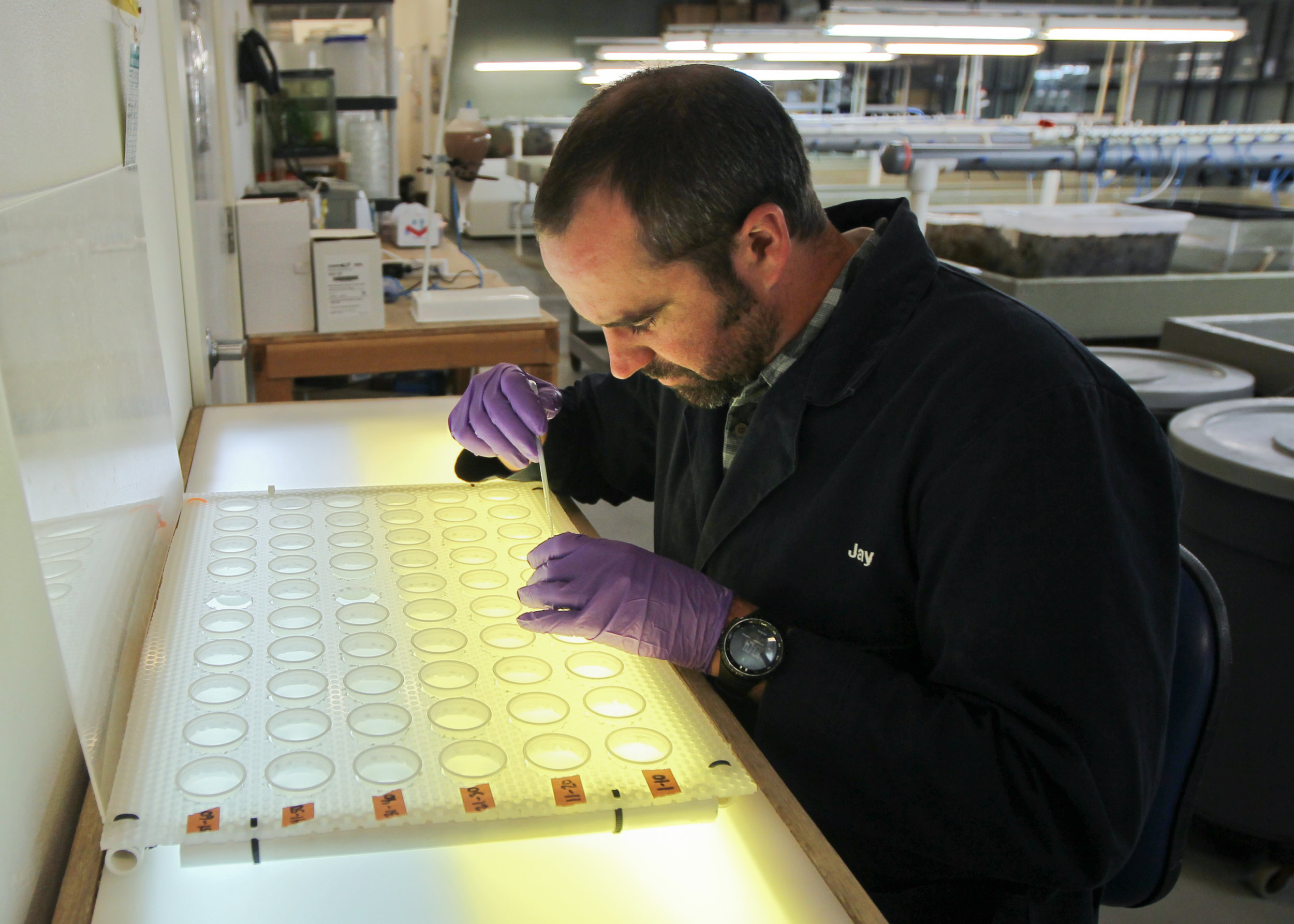Aquatic and Sediment Toxicology Laboratories
EcoAnalysts is a leader in the ecological toxicity industry in the United States with a dedicated team of over two dozen experts. We offer a comprehensive range of freshwater, marine, and terrestrial services, from acute and chronic WET testing often associated with NPDES permits, to toxicity testing on soils or sediments, as well as product testing which evaluates how model organisms respond to different concentration of that product.
With two state-of-the-art bioassay laboratories, located in Port Gamble, WA, and Alachua, FL, we provide nationwide coverage and have the capability to handle international projects as well. Our labs are NELAP and state certified, ensuring the highest standards of testing and compliance. We have extensive experience using a diverse range of species, which provides our clients with a flexible approach to evaluating potential ecological issues.
In addition to our routine toxicity testing services, we also offer specialized services including TIE/TRE, and innovative ecotoxicity research studies. Additionally, our team provides expert advisory consulting services for both simple and complex ecological issues. Whether you require routine testing or specialized research, EcoAnalysts is your trusted partner for all your ecological toxicity needs.
Environmental Effects Testing
EcoAnalysts ecotoxicology laboratories in Washington state and Florida offer bench-scale environmental effects testing. We are nationally accredited for a suite of marine and freshwater bioassays used to evaluate toxic effects and/or bioaccumulation of chemicals under controlled experimental conditions. Each laboratory has specialized capabilities to replicate environmental conditions from tropic to arctic climates.
Our scientists support laboratory testing for a variety of industries and municipalities. We follow rigorous guidance related to permit criteria for permit holders. Additional services include logistics for sample collection and shipping, development of testing programs for proposed methodologies or test species, and communication and coordination with regulatory agencies.
Our services are provided under a variety of regulatory formats including USEPA and state NPDES permits. More than a regional laboratory, we work in the Northeast, Gulf Coast Region, Southwest, Northwest, the arctic, and internationally.
Practice Areas
Contaminated Sediment and Soils Testing
Bioaccumulation/Bioavailability
Whole Effluent Testing (WET)
Phase I, II, and III Toxicity Identification Evaluations (TIE)
Dredged Material Evaluation
Contaminants of Emerging Concern
Endocrine Disruptors
Algal toxins
PFAS, PFOA, and PFOS
Specialized Capabilities
Unique in its design with the ability to provide a continuous flow of natural, filtered seawater, our ecotoxicology laboratories have specialized capabilities to replicate environmental conditions from tropic to arctic climates. Our laboratories can be contracted to function as a custom research facilities for your program.
8000 feet of lab space
Climate controlled test room
High capacity centrifuge for creating elutriates
Passive sampling devices for sediment studies
Multiple laboratory accreditations and the ability to perform compliance testing across the United States
Laboratory accreditations include: NELAP, ORELAP, WDOE and FDOH
A wide variety of freshwater and saltwater taxa are used to evaluate toxic effects and/or bioaccumulation of chemicals under controlled experimental conditions. In addition to routinely conducting standardized tests on an array of freshwater and marine organisms, we also develop and employ test methodologies with unique endpoints (such as edema differentiation using early life stages of fish) and new test species (Pacific herring, Arctic cod, and the copepod Calanus glacialis).
Ecotoxicology is used to evaluate the effects of toxic substances on biological organisms at the species, community, and ecosystem levels.


